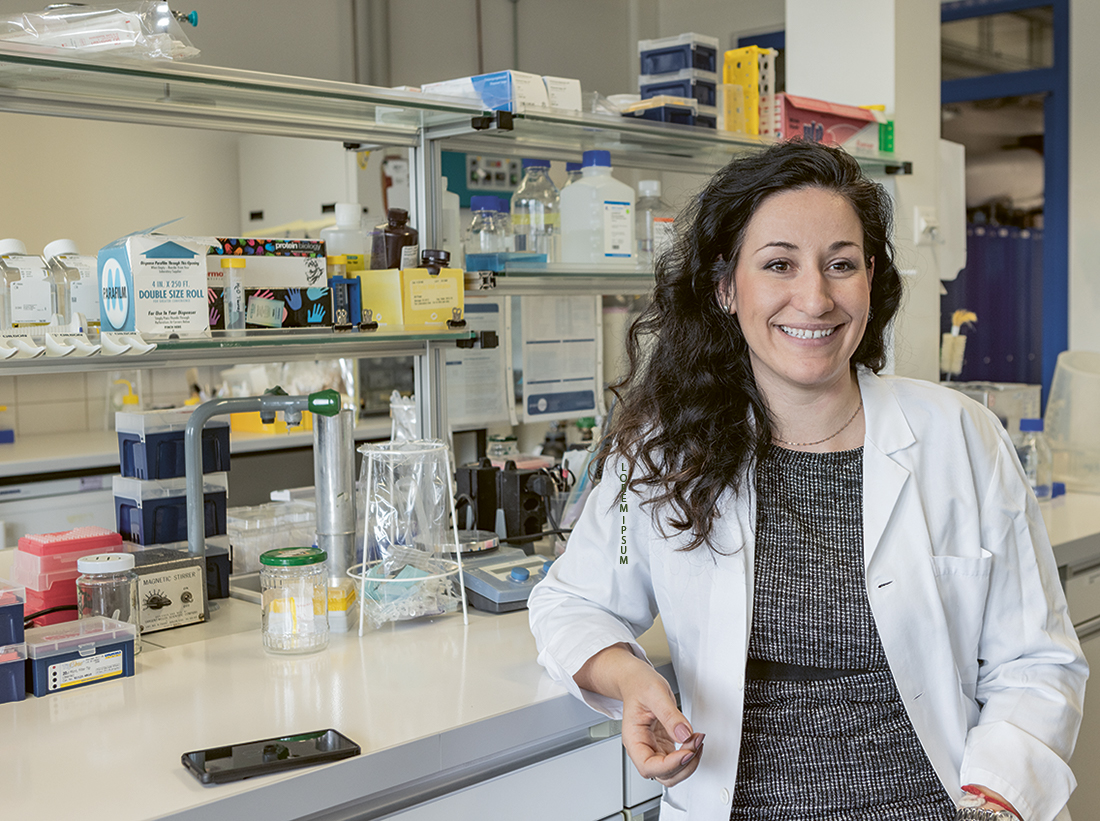Why we need muscle cell regeneration technologies for stress incontinence
In the magazine Einblick and on the website of the ZKB Pioneer Prize Technopark, we have featured MUVON Therapeutics. MUVON Therapeutics is a spin-off from the University of Zurich with the goal of establishing personalized regenerative therapies as the primary standard of care. Millions of patients suffering from debilitating diseases can regain control of their lives through skeletal muscle regeneration treatments.
The four founders, Deana Mohr, Jenny Prange, Steve Kappenthuler and Daniel Eberli, specialize in regenerative muscle cell therapy for stress incontinence. This occurs when a weakening of the pelvic floor or sphincter muscle leads to involuntary leakage of urine when abdominal pressure increases (e.g. when jumping, laughing or coughing). After childbirth, 25% of women and as many as 40% of women over the age of 40 suffer from incontinence. This affects them both emotionally and physically. Existing therapies rely on the use of synthetic materials, but this has sometimes led to unwanted side effects. Although we are aware of these potential side effects, they are far too rarely discussed. On the one hand, the topic is uncomfortable, on the other hand, there is a lack of concrete and patient-oriented information. Patients say: “It can feel dehumanizing when the disease robs you of your quality of life. You feel the loss of control, the loss of privacy, the loss of dignity or independence”.
The multidisciplinary team at MUVON Therapeutics aims to help women with stress urinary incontinence with a regenerative cell therapy. In the current Phase 2 study, which is supported by the Wyss Zurich Translational Center at the University of Zurich, patients with stress urinary incontinence at the University Hospital Zurich (Department of Urology) are being transplanted with the body’s own muscle precursor cells. First, a small muscle biopsy is taken from the patient’s calf. Muscle precursor cells are obtained from this biopsy and then multiplied in a bio-incubator. After a few weeks, the cultured autologous muscle precursor cells are injected into the bladder sphincter muscle. This muscle surrounds and controls the urethra. The effect of the treatment will be carefully monitored over a six-month period.
The new therapeutic approach could improve the symptoms of stress incontinence and possibly lead to a long-term cure. When MUVON was nominated for the ZKB Pioneer Award, little was known about Phase 2 of the study. In this extended research phase, researchers are testing the efficacy and safety of the new treatment option. The analyses are still ongoing and the study is not yet completed. Additional subjects are currently being recruited. The first impressions and results are very satisfactory. One patient reports that the therapy “(…) has brought about a significant improvement in my quality of life and well-being”. We are looking forward to the final results. Keep an eye out for them on the study website. In the future, more and more attention will be paid to stress incontinence. The first priority is to address the issue openly and provide better information. Thanks to the use of the body’s own muscle precursor cells, new treatment perspectives are opening up for patients with stress urinary incontinence.
If you suffer from stress incontinence, you can contact the study coordinators at any time. Additional subjects are currently being recruited. See: www.muvon-studie.ch.
Related links
- Link to the study and enrolment form: www.muvon-studie.ch
- Link to terms and conditions: https://muvon-studie.ch/teilnahmevoraussetzungen-pruefen/
- Link to MUVON Therapeutics: https://www.muvon-therapeutics.com
- We have described information about the Phase 1 study on the Pioneer Prize website: https://pionierpreis.ch/finalists-2023/muvon-therapeutics/#
- We have described the history, development and Phase 1 study in the “Einblick” magazine: https://www.yumpu.com/de/document/read/68025059/magazin-einblick-mai-2023

